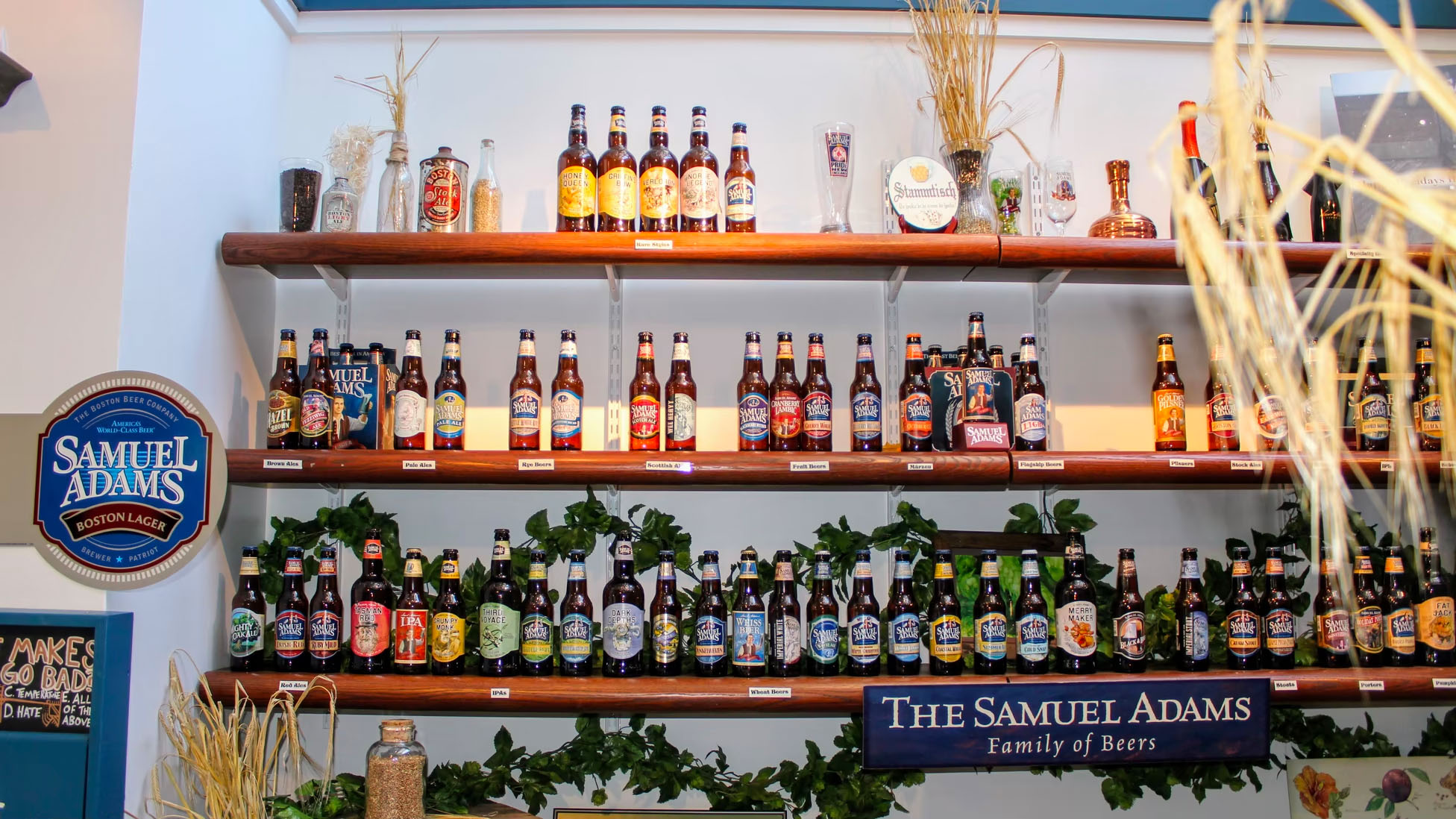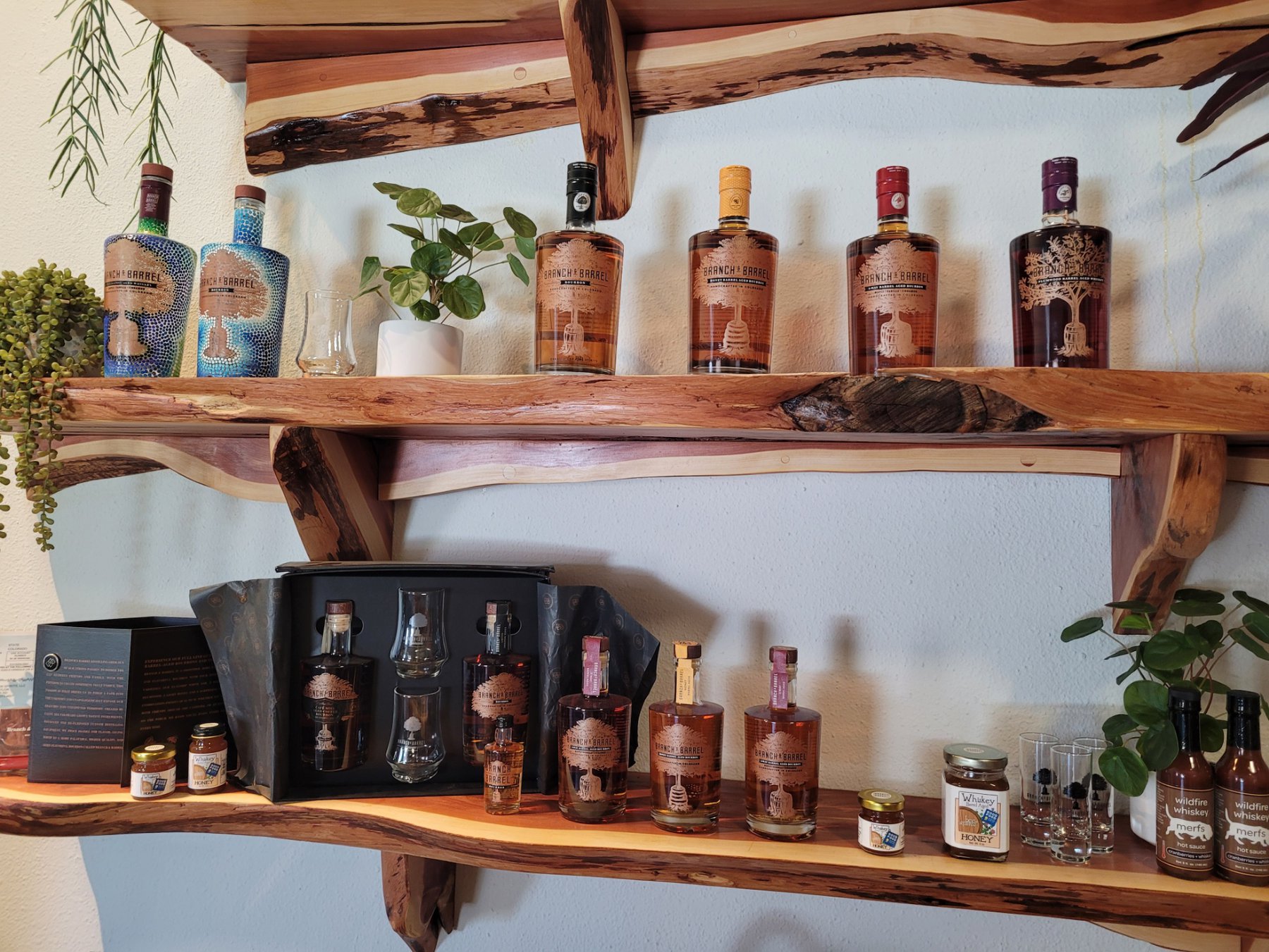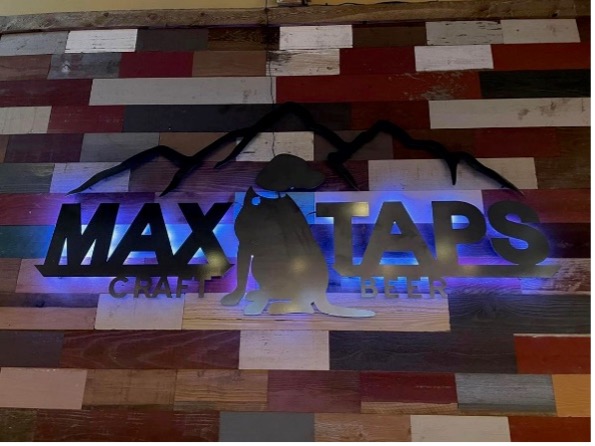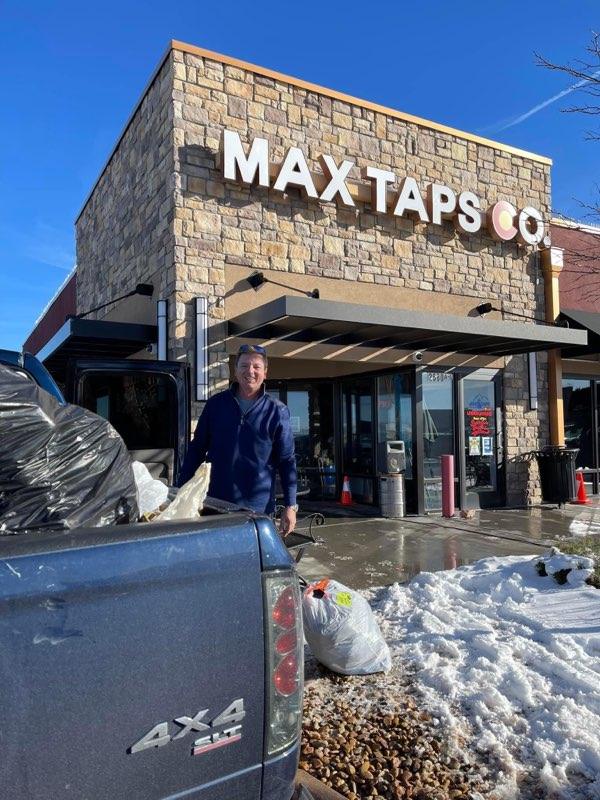In those days, brewers in England or Belgium or Germany would roll their eyes at what Yanks considered “good beer.” It was like French or German bakers talking about American white bread.
Now, of course, the tables have turned. I’ve seen little brewpubs from Beijing to Bogota, and Athens to Amsterdam, that feature “American-style craft beer.” It’s easy to make fun of the recent era of micro-brews and macro-hops. But the modern rise of American craft brewing has been a genuine success story of entrepreneurship, localism, small-business creativity, and in many places, of civic renewal.
Before everything changed because of the pandemic, America’s craft-brew industry was still growing—though more slowly and unevenly than in the true boom era a few years earlier. (There are fascinating details in this BrewBound industry analysis from a few months ago.) The number of breweries in the country had fallen below 100 by the early 1980s, in the depths of mega-brewer concentration. In 2018, it passed 7,000 and was still rising.
But what will happen now? I’ve been following up with breweries large and small around the country, and I’ll begin with the views of Jim Koch (pronounced cook), well known from TV commercials for Sam Adams beer and as the face of the company he co-founded with Rhonda Kallman in 1984.
I called Koch partly because of his role as one of the pioneers of American craft brewing, which I described in an Atlantic article about him on the 30th anniversary of the company’s founding. (Among the other significant pioneers were Ken Grossman, of Sierra Nevada in Chico, California; Jack McAuliffe, of the New Albion brewery in Sonoma; Fritz Maytag, of Anchor Steam in San Francisco; and Jimmy Carter, of the White House. It’s a story for another time, but Carter helped make the modern craft movement possible by deregulating home brewing in the late 1970s.)

I also wanted to talk with Koch because he’s been in the news. Many things about American brewing still operate in the shadow of 1920s-era Prohibition. During its nearly 14-year run, from the start of 1920 to near the end of 1933, Prohibition’s ban on legal drinking killed off most of what had been a thriving local brewery industry across the country. (Before widespread refrigeration, beer was mainly a locally made-and-consumed product, since it was hard to ship.) Even after the 21st Amendment ended Prohibition, states were freer to regulate business involving alcohol than most other forms of commerce, and many burdensome regulations remained. These included the home-brewing ban that Jimmy Carter finally overturned, and onerous “distributor” laws that distort the industry now.
“You don’t hear about lumber wholesalers who are fabulously rich,” Jim Koch told me last week. His point was: You do hear about beer wholesalers and distributors. For instance, John McCain became rich when he married his second wife, Cindy Hensley, who had inherited control of her family’s hugely lucrative Hensley distributorship in Arizona. Lumber mills, and most other businesses in the United States, are allowed to adjust their business plans and sell online or directly to customers if they choose, without going through wholesalers. By contrast, in most states brewers large or small may not legally sell directly to customers (outside their own taprooms, allowed in many states). Instead they must go through distributors—who can end up making as much from each case of beer as the brewer does.
In the Sam Adams home territory of Massachusetts, the relevant law was one that, in effect, permanently bound a brewery to whatever distributor it had initially done business with. “In Boston, I can only sell my beer to a single distributor,” Koch told me. “And retailers can’t get it from anyone but that distributor. This might have made sense 50 or 80 years ago, when the wholesalers were quite small and the brewers were all-powerful.” But now, he said, the dynamic has flipped. The brewers are small and proliferating new businesses. The distributors—only two main ones in the Boston area—had much more power, and if they decided not to feature a new brewery or line of beer, there was very little the brewer could do.
As the craft brew industry has grown, complaints about this relationship have as well. For instance, five years ago, in an online Beer Advocate forum about possible changes in the Massachusetts law, one person wrote:
Imagine you’re a growing local brand (Night Shift, Newburyport, Notch, etc) that is suddenly railroaded by Not Your Fathers Root Beer and beers of its ilk flooding the market and you end up relegated to the back-end of your distributor’s priority list. Maybe you’ll get their attention again when the current fad dies down, but maybe not. But hey, you signed a contract 6 months ago and are stuck for life as an also ran in your distributors portfolio.
Over the past decade, Koch and other Massachusetts brewers have waged a campaign to change the Massachusetts laws that in essence permanently bind brewers to their distributors. This month, there was a breakthrough, and one in which Koch and Sam Adams played a crucial part.
Boston Beer Company, which makes Sam Adams (and has now merged with Dogfish Head, originally from Delaware), is by far the biggest “small” brewer in Massachusetts. Thus it is also the most lucrative for its wholesaler. This summer, the brewers’ alliance pushing for reform agreed with wholesalers, after years of haggling, on a compromise. The wholesalers were willing to give up on the lock-in provision, but only for breweries producing less than 250,000 barrels a year. As everyone involved was aware, that exclusion applied to a category-of-one. The compromise would mean that all craft breweries in Massachusetts would be freed from the existing restriction—except the Boston Beer Company, which produces more than 4 million barrels of Sam Adams each year.
Jim Koch’s willingness to support a reform that would help everyone but him was reportedly the key in moving the reform legislation forward. As Matt Murphy of State House News Service wrote,
Koch … agreed in this latest round of talks to support a compromise that would exclude his company.
“That was a big point in breaking the iceberg. Clearly this was much more difficult to resolve if Jim Koch and Sam Adams was still in the mix. Again, good faith in an effort to help the smaller craft brewers,” Senate President Karen Spilka said.
In a statement, Koch said that the COVID-19 pandemic has made some brewers particularly vulnerable to wholesalers who might prioritize other products, and predicted that without reform some might not survive. He said that despite some concessions by wholesalers to include larger brewers, it was clear that the distributors would not support a bill that included Boston Beer.
“From Lawrence to the Berkshires, craft brewers serve as economic engines, employers and draw tourism to their communities. If brewers have to wait another two years for a bill to be considered, some will not survive,” Koch said in a statement provided to the News Service by the company. “Boston Beer had to make a decision. At the end of the day, that decision was to sacrifice ourselves by being excluded from Franchise Law reform in order to protect the hundreds of our fellow craft brewers in the state.”
“We’d been working on this for a long time,” Koch told me. “And then COVID hit. A lot of small breweries had tap rooms they relied on”—but those were ordered closed. “The wholesaler became life-or-death for a number of our members. It became clear that if we didn’t make a change, some of our members [small brewers] were not going to make it.”
Koch said that when the wholesalers accepted a deal that would liberate all companies except his, he had to make a decision. But, “I didn’t have to think very long about what was the right thing to do,” he said. “We had to take the deal, even though it did not include me.” Koch, who is not quite the good-old-boy he portrays in TV ads, elaborated that “from Immanuel Kant to John Rawls” he couldn’t find a rationale for declining to support the agreement. (A dozen years earlier, as described in this article, he had taken a similar hit for the team. During the world hop shortage of 2008, he had shared some of Sam Adams’s strategic stockpile of hops with smaller brewers—as many of the smaller brewers have attested.)
And what is the prospect for brewers in general, through the pandemic and shutdown? “So far, it has not been quite as devastating as we all thought,” Koch told me. Why? “Because people are actually drinking the same amount of alcohol, and seem to be trading up to more premium forms.” The bars and restaurants are suffering, because fewer people can go there. The brewers are not suffering as badly, because people are buying as much or more of their product to drink at home.
“I am assuming tap rooms won’t be closed forever,” he said. “Suppose it’s two years until things are ‘Back to normal,’ so that people are not freaked out about going out in public.” The question, he said, is how many of the small companies can survive in the meanwhile.
Even before this crisis, Koch said, craft brewing had been a volatile though growing industry. Even in “normal” times, the turnover rate for restaurants or brewpubs might be 10 percent per year, he said. “Suppose 10 percent of craft brewers will not be able to reopen. But those that have a sound, solid business model, and are creative with new products, I believe will survive.” He pointed out that no sane person had started up a microbrewery primarily in hopes of ROI. “They loved beer. They wanted to be part of the community. Those motivations will be part of all of our getting through this adversity. And maybe your taproom will be a little more important to the community than it was before.”
Next up: Reports from some of these much smaller brewers, and from another major player.




